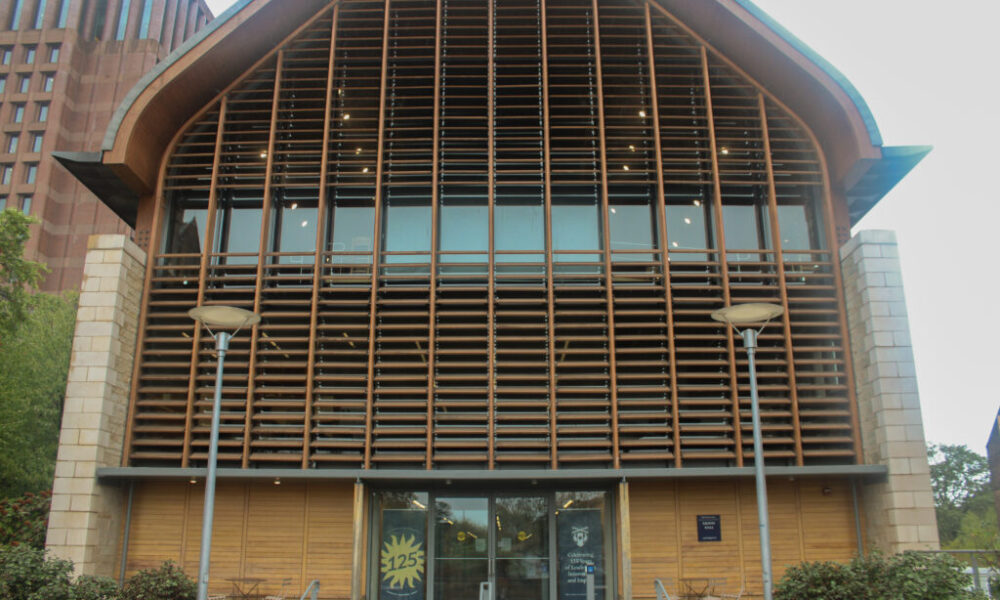National Collegiate Alcohol Awareness Week, scheduled for October 19-25, aims to highlight the challenges faced by students at campuses across the United States, calling for enhanced education and resources related to alcohol use. At the College of William & Mary, Associate Professor of Psychological Sciences, Adrian Bravo, is contributing to this effort through a collaborative research initiative that investigates the factors contributing to alcohol use disorders among students.
Working alongside an international team of researchers and undergraduate students, Bravo is exploring cross-national trends that may shed light on why certain individuals are more susceptible to problematic drinking behaviors. A recent study published in the journal Substance Use & Misuse, with William & Mary alumna Isabela Ortiz Caso as the lead author, identifies adverse childhood experiences as a significant factor influencing these vulnerabilities.
“Adverse childhood experiences aren’t limited to severe physical or emotional abuse,” Bravo explained. “Witnessing constant conflict between parents, living with a family member struggling with alcohol dependency, or feeling unloved can profoundly shape an individual’s identity and worldview.”
While the study does not establish direct causation, it highlights a pattern of correlations linking childhood adversity, ruminative thinking, and alcohol use as a coping mechanism, often leading to negative consequences.
Global Reach of the Research
The research encompasses a diverse pool of over 4,000 students from 12 universities across seven countries, including Argentina, England, the United States, and South Africa. “Most psychology studies focus on a single population,” Ortiz Caso noted. “However, we found similar patterns across multiple nations, indicating that the factors associated with problematic drinking transcend geographical boundaries. This suggests that our findings could assist public health officials in developing global harm-reduction strategies.”
The collaboration, known as the Cross-Cultural Addictions Study Team (CAST), was initiated by Bravo, who, as a Cuban immigrant, recognized the importance of understanding alcohol and drug use norms across different cultures. The team now comprises 18 researchers from various countries, united by the goal of examining how individual differences, including past experiences, impact the risk of substance use and mental health issues.
Through CAST’s research, Bravo has identified three primary factors associated with increased risk for problematic drinking: impulsivity, poor mental health, and adverse childhood experiences.
“The first factor, impulsivity, often manifests as an urgent need to act when emotions are heightened,” he explained. “This urgency can lead to drinking for both celebration and coping with disappointment.” The second factor relates to mental health, as students who struggle with negative emotions may turn to substances as a quick escape. The third factor, which is the focus of Ortiz Caso’s recent study, encompasses a range of adverse childhood experiences, from physical abuse to unstable home environments.
Motivations Behind Alcohol Use
Ortiz Caso, who has transitioned to work as an intramural research fellow at the National Institutes of Health, also shares a background as a Cuban immigrant and a passion for studying cross-cultural differences. She joined Bravo’s research lab after being inspired by the W&M Scholars Undergraduate Research Experience (WMSURE), a program designed to support undergraduate students in their research endeavors.
Demonstrating her research skills, Ortiz Caso proposed and led the study recently published in Substance Use & Misuse, with support from the Margaret S. Glauber Faculty-Student Research Fellows and Scholarship Fund, established in honor of Margaret “Maggie” Glauber, class of 1951.
“I was eager to explore whether risky family environments, characterized by hostility and aggression, would correlate with negative alcohol-related consequences,” she said. “Obtaining statistically significant results across diverse regions was incredibly exciting.”
For Ortiz Caso and her team, identifying these patterns is crucial for developing interventions aimed at addressing alcohol misuse among college students. “When individuals drink to cope with negative emotions shaped by early life experiences, their motivations differ significantly from those who drink socially,” she explained. “Rather than succumbing to peer pressure, they are using alcohol to manage their internal struggles.”
Both Ortiz Caso and Bravo emphasize the importance of universities providing clear, ongoing education and accessible resources for students grappling with alcohol-related issues. William & Mary offers a variety of health and wellness programs, including resources through Campus Recreation, the Counseling Center, Health Promotion, and the Student Health Center.
Additional support is available at the William & Mary School of Education, which operates the New Leaf clinic as part of the Flanagan Counselor Education Clinic, providing assistance to students facing high-risk substance use. Faculty and staff can also access the Employee Assistance Program, which offers comprehensive counseling services.
“When addressing student alcohol use, universities should not merely advise students to drink less or more safely,” Bravo said. “They must also provide alternatives for those who resort to alcohol or drugs for stress relief, such as meditation, exercise, and counseling. These accessible resources can help break the cycle of maladaptive coping and enable students to cultivate healthier habits.”







